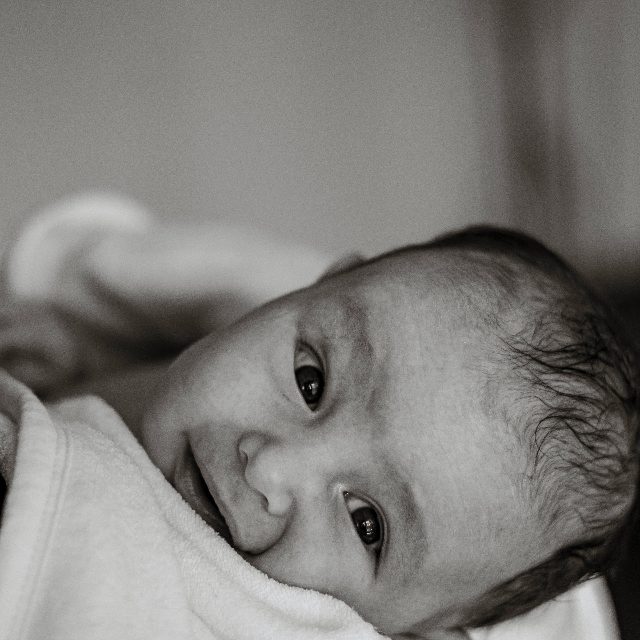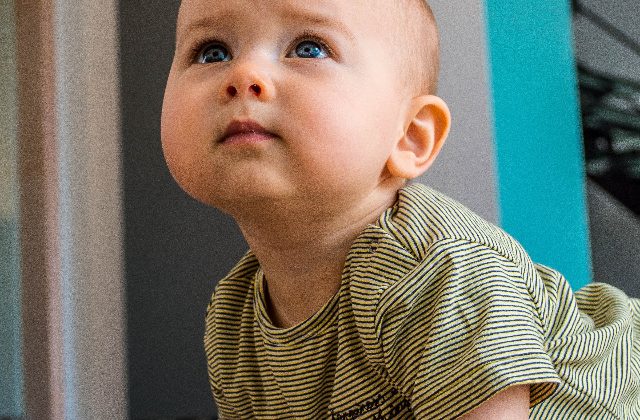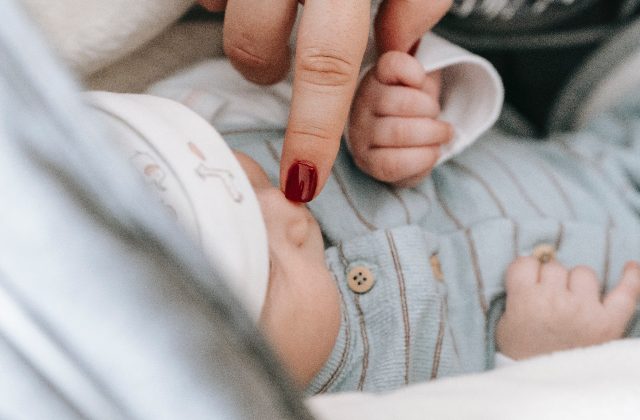
Babies are born with delicate noses that are crucial to their overall health and well-being. As parents observe their little ones, they may notice what appear as baby holes in nose. However, these baby holes in nose are a natural and essential part of the nasal anatomy, serving important functions.
In this article, we will explore the nasal cavity and shed light on the purpose of these “baby holes in nose.” We aim to address common concerns parents may have about these structures and provide valuable insights into their significance for a baby’s health. Understanding the anatomy of the nose and its functions can help parents feel more informed about baby holes in nose and at ease when observing their baby’s nasal development.
What Is The Nasal Cavity?

Within the nose, there exists a complex and intricate structure known as the nasal cavity. This cavity is divided into two halves by a thin wall called the nasal septum.
The primary function of the nasal cavity is to prepare the air we breathe before it reaches our lungs. It accomplishes this through a series of essential processes. First, it warms the inhaled air, ensuring that it is at a suitable temperature for our respiratory system. Next, the nasal cavity humidifies the air, adding moisture to prevent our airways from becoming dry. Lastly, the cavity filters the air, removing particles and impurities, thanks to the presence of tiny hair-like structures called cilia.
Furthermore, the nasal cavity is richly supplied with blood vessels that help regulate the temperature and moisture levels of the inhaled air. This intricate system ensures that the air we breathe is optimally conditioned to promote healthy lung function and overall respiratory well-being.
Understanding Baby Holes In Nose
When examining baby holes in nose, you may observe small openings on the sides of the nasal septum. These openings, commonly known as nostrils or nasal passages, serve as the primary entrances to the nasal cavity. Their role is crucial as they allow the free flow of air into the nose and facilitate its passage into the respiratory system.
The nostrils are surrounded by soft tissues, which can sometimes appear as small flaps or folds. These structures play a significant role in regulating the airflow, ensuring it is balanced and smooth. Additionally, they act as protective barriers, preventing unwanted debris or particles from entering the delicate nasal cavity.
It is essential to keep in mind that the size and shape of the nostrils can vary among individuals, including babies. Some babies may have slightly smaller or more prominent nostrils than others, and this falls well within the spectrum of normal anatomical variations. As long as the baby is breathing comfortably and shows no signs of respiratory distress, any such variation in the appearance of the nostrils is typically nothing to worry about.
Causes of Baby Holes in Nose
Alrighty, so you’ve noticed your little munchkin has these baby holes in nose, and you’re like, “What’s the deal?” Well, let’s break it down in a fun and chatty way:
What’s Causing Those Baby Holes In Nose?
- Congenital Capers: Sometimes, it’s all about the genes! Conditions like choanal atresia, where the nasal passages play hide-and-seek, can make these little nostril openings pop up. But don’t worry, a check-up with the doctor is key for any breathing worries.
- Oopsie-Daisy Injuries: Uh-oh! Accidental nose bumps or tumbles can lead to baby holes in nose too. It’s like their little noses got a bit too adventurous! Better get those bumps checked out to make sure everything’s A-OK.
- Polyp Party: Yup, even babies can get nasal polyps—little non-cancerous growths that can block the nose and make those baby holes in nose appear. Time for a chat with the pediatrician to see what’s what.
- Sniffle Trouble: Those pesky nasal infections can also be culprits. Bacterial or fungal invaders can cause some damage, resulting in those adorable nasal holes. Quick, get the tissues and call the doc!
- Doc-Related Dilemmas: Sometimes, it’s the medical stuff that can cause a nose ruckus. Tubes going in and out or foreign objects being removed can occasionally leave behind some souvenir holes. It’s like a little nose adventure!
- Piercing Predicaments: Yep, some folks like to pierce baby noses for cultural or style points. But watch out! Piercings can sometimes lead to infections or, you guessed it, those little nose holes. Always best to chat with the doc before any piercing parties!
What’s the Scoop?
- Early Bird Gets the Worm: If you spot those baby holes in nose early on, keep an eye out for any breathing issues. Quick action and a chat with the doc can help sort things out pronto!
- Stay Nosey: Pay attention to any funny business with your baby’s breathing or nose, like sniffles or strange sounds. And if anything seems off, don’t hesitate to reach out to the doc for some nose-navigating help!
- Doc’s Orders: When in doubt, chat with your friendly neighborhood pediatrician. They’ll give you the lowdown on what’s up with those nose holes and what steps to take next.
So there you have it, folks! Baby holes in nose might seem like a mystery, but with a bit of nose-know-how and a chat with the doctor, you’ll have everything sorted out in no time. Keep those little noses happy and healthy!
Common Concerns About Baby Holes in Nose

Stuffy Nose Woes
Ah, the classic baby battle with nasal congestion! Whether it’s from a pesky cold, allergies, or just dry air, those tiny nostrils can get pretty stuffy. But fear not! Parents can unleash the power of humidifiers, saline drops, and trusty nasal aspirators to help their little one breathe easy again.
Runny Nose Rundown
Runny noses are like a rite of passage for babies—thanks, common colds and allergies! But don’t fret. A gentle wipe with a soft cloth and some saline drops can work wonders in keeping those nasal passages clear and comfy.
Suction Superheroes
Enter the mighty nasal aspirator! These nifty gadgets swoop in to save the day by sucking up all that extra mucus from your baby’s nose. Just remember, less is more when it comes to sucking, so use ’em sparingly and with care.
Nosebleed Nonsense
Nosebleeds in babies may look alarming, but fear not—they’re usually harmless. A bit of gentle pressure and some humidity magic can help stop the bleeding and keep those tiny noses happy.
Breathing Battles
Sometimes, those itty-bitty nasal passages can make breathing a bit tricky for babies. If you notice your little one struggling to catch their breath or looking distressed, don’t hesitate to call in the cavalry—aka, your friendly neighborhood healthcare provider—for some expert assistance.
Oops, Object Alert
Babies are curious creatures, and sometimes that curiosity leads them to shove stuff up their noses. Yikes! If this happens, stay cool and call in the pros for a safe and swift removal of the foreign object.
Allergy Adventures
Ah-choo! Babies can develop allergies too, whether it’s to pollen, pet fur, or certain foods. If you suspect your little munchkin is battling allergies, a chat with the pediatrician can help pinpoint the culprit and chart a course of action.
Flare-up Fun
You may notice those adorable baby nostrils flaring up during intense moments like crying or feeding. While it’s usually just a normal response to the respiratory hustle and bustle, if it sticks around too long or comes with other worrisome symptoms, it’s time to call in the pros for a closer look.
There you have it, folks! Navigating the nose niverse of babyhood can be a bit of a rollercoaster, but armed with a few tricks and tips, you’ll keep those tiny noses happy and healthy in no time
Treatment Options for Baby Holes in Nose
In the majority of cases, baby holes in nose does not require specific treatment as they typically resolve naturally with time. To maintain good nasal hygiene, it is essential to gently clean your baby’s nostrils using a soft, damp cloth or a nasal aspirator to prevent mucus buildup.
However, if the baby holes in nose persist or raise concerns, consulting a pediatrician or an ear, nose, and throat (ENT) specialist is advisable. They can evaluate the condition and determine the best course of action. Treatment options may include:
• Observation: In many instances, healthcare providers may recommend a wait-and-watch approach, as the nasal pits often disappear as the baby grows and their facial features develop.
• Surgical Correction: In rare cases where the pits are deep or causing functional issues, surgical correction may be considered. This involves a minor procedure to smoothen out the nasal pits or improve their appearance. It is crucial to note that surgery is not commonly performed for baby holes in the nose, and its necessity should be thoroughly discussed with a medical professional.
By following these guidelines and seeking medical advice if necessary, parents can ensure their baby’s nasal health and overall well-being.
When to Seek Medical Attention for Baby Holes in Nose
Breathing Blues: If your little one is struggling to catch their breath, with rapid or labored breathing, or seems distressed and gasping for air, it’s time to hit the panic button and call in the medical cavalry pronto!
Congestion Crisis: When nasal congestion becomes the ultimate sleep or feeding foe for your baby, it’s not just a minor annoyance—it could signal a deeper issue. Get on the blower to your healthcare provider to sort out what’s what.
Nostril Blockade: If one or both of those cute baby nostrils stay stubbornly blocked for way too long, it might be time to investigate further. Your doc can swoop in and play detective to uncover any lurking obstructions or structural snags.
Nosebleed Nightmare: While a little nosebleed here and there might not raise eyebrows, if it’s turning into a full-blown gusher or just won’t quit, it’s definitely cause for concern. Reach out to your healthcare hero to stem the tide and figure out the root cause.
Infection Invasion: A feverish baby with a sniffly nose emitting a funky odor? Sounds like a job for the healthcare squad! If your little one shows signs of infection, like fever or stinky discharge, it’s time to call in the pros to banish those germs.
Conclusion
Baby holes in nose, or nostrils, are entirely normal and serve a vital function in allowing air to enter the nasal cavity. Understanding the anatomy and purpose of these nasal openings is very important and can help parents distinguish between typical variations and potential concerns that may require medical attention.
The nasal cavity is a complex structure responsible for warming, humidifying, and filtering the air we breathe before it reaches the lungs. The nostrils, being the main entrances to the nasal cavity, facilitate this process by allowing the airflow in. The tiny hairs and mucus lining the nasal passages further aid in filtering out dust, allergens, and other particles, protecting the respiratory system from potential harm.
While many minor nasal issues, such as occasional congestion or runny nose, can often be managed at home with simple remedies like saline drops or gentle cleaning, parents need to recognize situations that necessitate medical attention. Severe difficulty breathing, prolonged nasal blockage, excessive nosebleeds, signs of infection, or any other concerning symptoms should prompt parents to seek appropriate medical care promptly. By staying informed about the normal development and function of the baby’s nose and being vigilant for any unusual signs or symptoms, parents can take proactive steps to ensure their baby’s nasal health and overall well-being. Timely and appropriate medical intervention, when required on baby holes in nose, can help address any potential issues and ensure that the baby’s respiratory system functions optimally.
Leave a Reply
You must be logged in to post a comment.